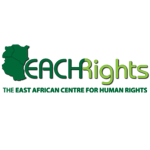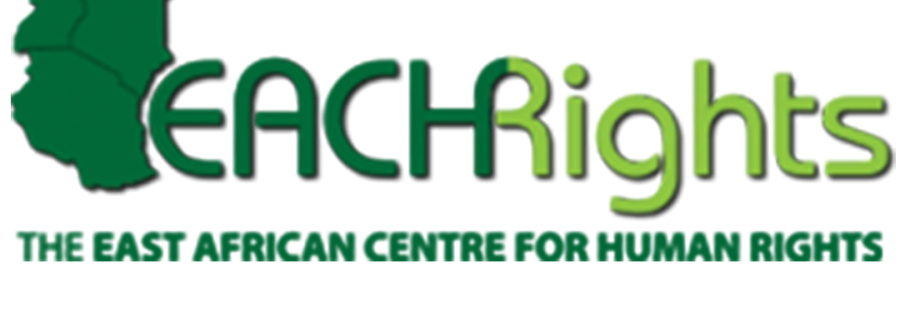
Website EACHRights East African Centre for Human Rights
EACH Rights is a non-partisan, Regional Non-Governmental Organization that seeks to initiate and undertake programmes that promote, protect, and enhance Economic, Social, and Cultural Rights (ECOSOC Rights) in Kenya, Uganda and Tanzania for vulnerable and marginalized groups.
DATE OF ISSUE: DECEMBER 13, 2023
Download PDF version of the Research Consultant TOR here
Position: Consultant
Tentative starting date: December 2023
Type of contract: Short term
Location: Nairobi, Garissa and Marsabit, Kenya
1. About EACHRights
The East African Centre for Human Rights (EACHRights) was founded in May 2010 and registered as a Trust in Kenya in November of the same year. It was established to undertake human rights work within a regional context. The organization is the first regional human rights institution of its kind in East Africa that seeks to initiate and undertake programmes that will promote, protect, and enhance human rights generally but with special emphasis on the promotion and realization of Economic, Social, and Cultural Rights (ECOSOC Rights) in Kenya, Uganda, and Tanzania for vulnerable and marginalized groups.
The organization also specializes on the Right to Education; Child Protection and the Right to Health for children in Kenya.
2. About the Project
EACHRights is implementing Phase III of “Watoto Wetu” project nationally and in the pastoralist Counties of Marsabit and Garissa. The themes for the project are: female genital mutilation and child marriage. The project is funded by ERIKS Development Partner and seeks to build on the successes and lessons learnt in Phase I and II of Watoto Wetu.
Project’s overall objective: To contribute to the reduction of harmful cultural practices in pastoralist counties through advocacy and community partnership” with specific focus on girls in the pastoralist counties of Garissa and Marsabit.
Project’s specific objectives:
- To increase awareness and government engagement on ending FGM and child marriage at the national level and Garissa and Marsabit counties through advocacy and lobbying by 2024.
- To enhance evidence-based programming and decision making for implementing partners and other stakeholders towards ending FGM and child marriage through research by 2024.
Expected outcomes of the project were:
- Children supported to organise and speak out on harmful cultural practices.
- Children’s participation shall also be ethical and meaningful in line with the 9 basic requirements for quality participation.
- Functional policies on the planning, financing and coordinating of all activities towards addressing to female genital mutilation and child marriage at the national and county level.
- Increased engagement by social actors (traditional cultural elders, media, mutilators, and others stakeholders) towards ending FGM and child marriage.
- Joint advocacy by child rights CSOs working for gender equality.
- Increased use of evidence by CSOs, communities and County Governments in advocacy towards ending FGM and child marriage
3. Purpose of the Consultancy and Scope of the assignment
The purpose of the assignment is to conduct a mid-term survey to establish benchmarks for onward measurement of intended and unintended change /outcomes in targeted project areas. The mid-term survey will be limited to project implementation areas in Garissa and Marsabit Counties and establish benchmarks for higher level indicators as set in the result’s framework. More specifically:
The mid-term project evaluation will have three objectives:
Objective 1: Evaluate to what extent the Watoto Wetu project has fulfilled its goals based on the objectives in the project log frame.
- Efficiency in delivery of project outcomes.
- Effectiveness in activity implementation.
- Relevance of the project and interventions.
- Cost Effectiveness.
- Quality of intervention.
- Timeliness as set out in log frame.
Objective 2: Assess whether the Watoto Wetu Project is adding value to the interventions with a positive effect in advocacy, on the beneficiaries and other stakeholders. What has contributed to this added value and what has not?
Learning
- Which of the project approaches, and modalities/strategies are the most effective.
- Is there any substantial evidence on how project learning is being generated and applied to improve the delivery or effectiveness or efficiency?
- Who is benefitting from shared learning experiences (e.g. quarterly, joint field visits, workshops provision on best approaches and methodology), mainly the NGOs or also the local sector, community members and beneficiaries?
- What measures have been taken, to create visibility of the project’s added value, towards line ministries and other stakeholders?
Objective 3: Identify and assess key lessons learned, challenges and draw recommendation for future programming.
The mid-term evaluation should at least include one lesson learned and recommendation per evaluation category, i.e. effectiveness, efficiency, relevance etc.
- What are the key lessons learned?
- To what extent has the delivery of response activities contributed to effective, efficient, relevant and timely delivery of aid and enhanced impact for the beneficiaries?
Sustainability
- Will the changes caused by this project continue beyond the life of the project?
- What mechanisms have the project and key stakeholders put in place to sustain the key project outputs and outcomes?
- How has the project worked with local partners to increase their capacity in a sustainable way?
4. Methodology
The mid-term survey will be conducted by an independent consultant supported by EACHRights staff. The consultant will also work closely with Watoto Wetu Project team and will be under the supervision of Watoto Wetu Project Manager. The survey will use both qualitative and quantitative approaches in data collection and analysis.
4.1 Document Review
This will entail reviewing of project documents and other secondary materials as provided by the project, and/or from other relevant sources
4.2 Reviewing the Tools
The consultant will lead the EACHRights team in reviewing the already drafted tools against the listed indicators to ensure that all variables are measured appropriately.
4.3 Field Data Collection
Data collection will be done in the target counties using participatory methodologies identified in each tool. The consultant and the research assistants will be subject to EACHRights values and policies while undertaking the field work, interacting with EACHRights staff, primary actors (beneficiaries) and throughout the engagement period. The consultant and research assistants will have to make a commitment to safeguarding and child protection policy at the point of engagement.
4.4 Target Groups/Respondents
The project primary actors/beneficiaries and stakeholders to be engaged in this survey comprise of children, members of national and county civil society organizations and networks, Children’s Department, community members, Ministry of Gender and Social Protection officials, and officials from the Gender departments in Garissa and Marsabit Counties.
4.5 Data integrity:
The consultant is required to ensure high level of integrity through-out data collection and analysis process. It is important for EACHRights to get the real benchmarks per indicator to inform further programming and programme investment.
5. Deliverables
- A detailed inception report containing methodology, tools, key sources of data, and work plan for field work.
- Presentation of the mid-term survey findings to EACHRights staff and relevant stakeholders for validation.
- A comprehensive narrative mid-term survey report minimum 10 pages and maximum 30 pages excluding the annexes, and preliminary pages.
- A dashboard of all the indicator benchmarks measured through this survey.
6. Roles and Responsibilities
6.1 Role of the Consultant
- In-depth review of Watoto Wetu project documents and related reports;
- Submission of a comprehensive inception report detailing the mid-term work plan; methodologies and tools;
- Lead in the data collection process;
- Entry and analysis of primary; data.
- Drafting the mid-term survey report;
- Facilitation of final validation meeting;
- Preparation and submission of final mid-term survey report and a dashboard complete with all indicator benchmarks.
6.2 Role of EACHRights
- Provide relevant project documents;
- Participate in the review of the drafted tools;
- Provide feedback and input to the process of adjusting the mid-term study methods and timeframe;
- Mobilization of all sampled mid-term survey respondents;
- Provide supportive supervision to the consultant and the research team throughout the engagement period.
7. Duration of the Assignment
The assignment will take 21 contract days commencing from the signing of the contract. The contract will be effective from the date of signing the agreement by both parties and it will continue until the completion of all the tasks and timely submissions.
8. Consultants Qualifications, Skills and Experience
The Consultant(s) will possess the following minimum skills;
- At least a master’s degree in related field;
- Strong experience in Monitoring, Evaluation and Research, preferably within the area of child protection and project management;
- Strong experience in people centred and rights-based programming at policy, strategy as well as implementation level;
- Understanding of the counties that the project is operating in;
- Strong experience in participatory research methodologies;
- Broad previous experience with multi-county/county evaluations;
- Excellent analytical, facilitation, communication and report writing skills.
9. Submission of interest
Interested candidates who fully meet the above criteria are invited to send their applications to either jobs@eachrights.or.ke or info@eachrights.or.ke along with the following:
· Cover letter indicating interest with a capability statement detailing suitability for the assignment, similar assignments done within the past 24 months and contacts for the clients’ CV(s) of the consultant/s who will undertake the survey.
· Detailed technical proposal on the methodology, tools, approaches, potential limitations, and challenges and how they will be addressed.
· A detailed financial/budget proposal.
· An indicative timeline for the survey.
Applications are to be submitted on or before 1700hrs (EAT) on 23rd December 2023. The subject of the application letter or e-mail should read EOI: WATOTO WETU MID-TERM EVALUATION CONSULTANCY and the Cover letter should be addressed to:
The Chair
Board of Directors
East African Centre for Human Rights – EACHRights
P.O. Box 19494-00100
NAIROBI, KENYA
Only e-mail applications will be accepted. Incomplete applications will not be considered and only successful candidates will be contacted. Any form of canvassing will lead to automatic disqualification.
East African Centre for Human Rights is an equal opportunity employer.
To apply for this job email your details to info@eachrights.or.ke





